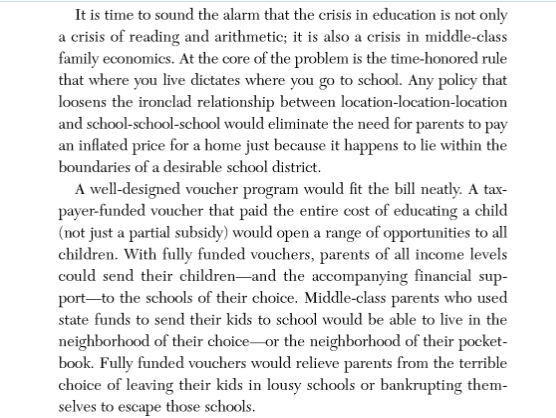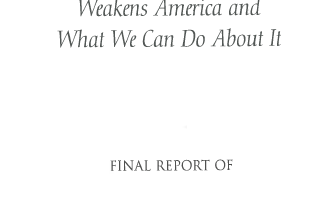- Facebook87
- Twitter1
- Total 90
A lively and valuable debate is underway about whether Senator Sanders or Warren should carry the flag of the left. Considering that Sanders calls himself a “socialist,” and Warren says she’s pro-“market,” it’s worth thinking about what each means by these words and how their words relate to their policies and their political strategies or theories-of-change. For instance, if both use the New Deal as a positive reference point–Sanders to illustrate socialism and Warren to show how capitalism can be saved–then maybe the difference is merely semantic. Or maybe not.
I would contribute one observation. Elizabeth Warren may belong in a specifically American tradition of progressive politics that is distinctive from socialism and that lacks a crisp name of its own, so far as I know. But it has these features:
- Enthusiasm for truly competitive markets that are free of monopolies. Competition is supposed to lower profits to minimal levels and make companies accountable to consumers and prospective workers. For instance, Louis Brandeis argued in 1912 that “our people appreciate better than they did before, the great economic truth which was embodied in the Sherman Law”: “the value of competition.” “The Democratic position … is that private monopoly in industry is never permissible; it is never desirable, and is not inevitable; competition can be reserved, and where it is suppressed, can be restored.”
- An understanding of the public as consumers. In 1912, the Progressive thinker Walter Weyl wrote that the office of “consumer is most universal, since even those who do not earn wages or pay direct taxes consume commodities. In America to-day, the unifying economic force, about which a majority, hostile to the plutocracy, is forming, is the common interest of the citizen as a consumer of wealth” (The New Democracy, New York, 1914, pp. 248-50)
- Related to the last point, a preference for universal identities over special interests and particular identities.
- An ideal of the government as the protector of consumers. Robert M. La Follette said in 1906: the “welfare of all the people as consumers should be the supreme consideration of the Government.” Often this is extended to workers as well.
- Related to the last point, a defense of democracy (with reforms like referenda and publicly finance campaigns) as the system that makes government most accountable to all the people, not to special interests.
- A theory that citizens should mainly monitor their own rights and choose leaders and officials to protect them. For their part, prospective leaders should offer detailed proposals for solving problems. “I have a plan for that” is exactly this approach.
- A belief in transparency and access to information as tools of reform, captured in Brandeis’ famous line that “sunlight is the best disinfectant.” Brandeis also wrote that the Sherman Antitrust Act would remain inadequate without stronger enforcement, better “administrative machinery,”and “comprehensive, accurate, complete knowledge” of the behavior of businesses (mandatory transparency).
Note that this is not socialism. That word can be defined in many ways, but surely it would stretch the term to use it for a political philosophy that prizes competition and consumer identities.
But it can be radical, and it’s a deeply American tradition. Roger Taney, while Secretary of the Treasury under Andrew Jackson, said, “it is proper that [banking] should be open as far as practicable to the most free competition and its advantages shared by all classes of society.” A century-and-a-half later, Ralph Nader also championed deregulation of selected industries, consumer rights, transparency, and popular sovereignty.
To illustrate Senator Warren’s adherence to this tradition, I would cite (for example) her interview with Franklin Foer in The Atlantic:
I believe in markets and the benefits they can produce when they work. Markets with rules can produce enormous value. So much of the work I have done—the Consumer Financial Protection Bureau, my hearing-aid bill—are about making markets work for people, not making markets work for a handful of companies that scrape all the value off to themselves. I believe in competition.
Or consider her endorsement of school vouchers in The Two-Income Trap: Why Middle-Class Parents are Going Broke (2003):

Warren’s specific position on vouchers has changed, but not her deeper philosophy.
Her stance deserves very serious consideration, and a case can be made that it is the best path forward for the American left. But I would raise these questions:
Should the consumer identity satisfy us? What about criticisms (cultural, environmental, and spiritual) about consumerism? Would it be better to see us all as producers? And what about other identities that differentiate Americans, such as race and ethnicity?
Should the implicit role left for citizens satisfy us? Is our job to critically evaluate candidates’ plans for solving our problems, or must we take deeper action?
Do competition and transparency work? (I think Warren herself would say: only sometimes.)
(Most quotes from my book The New Progressive Era. See also: citizenship in the modern American republic: change or decline?; transparency is not enough

